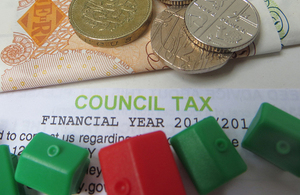41% of people in the dark about their tax refund – here’s why you could be owed money

With the cost of living set to increase in the coming months, research by tax refund experts, RIFT Tax Refunds, reveals that many people do not realise that they could be entitled to a tax refund even if they are paid via PAYE, and are therefore missing out on nearly £1,000 in the pocket a year.
According to a survey commissioned by RIFT Tax Refunds, 41% of people do not realise that they could be entitled to a tax refund, even if they are paid via PAYE, instead assuming such refunds are for self-employed workers only.
Furthermore, some 53% of people are not aware that they have up to four years from the end of each tax year to claim their refund. Previous research from RIFT reveals that this means the average applicant is missing out on £2,500 in refunds for an initial four year claim, and a further £929 per annum thereafter.
One key reason for people not being aware of this fact is that 60% have never actually applied for a tax refund and have, therefore, never had reason to learn about how tax refunds work.
A tax refund is an amount of money that can be claimed back from HMRC if a person has paid more tax than they owe in any given tax year.
There are a myriad of reasons why one could be owed but the most common include: –
Tax code issues
Your tax code is assigned to you to help the government decide how much income tax you are required to pay. However, they can change depending on a person’s income and employment situation. Sometimes, these changes are not recorded properly and so people continue paying a larger amount of tax than their income dictates. This can happen due to a change in job, a change in role, or moving from self-employment to PAYE and vice versa.
Private pensions and redundancy payments
With income-related private pensions, it’s not uncommon for people to be overcharged for tax, an error which can go unnoticed if a refund application isn’t submitted. Similarly, tax is often overpaid on redundancy payments.
Annuities
An annuity is a financial product that pays out a fixed stream of payments to an individual, primarily used as an income stream for retirees. If a person’s annual income is below their personal allowance, they should not be taxed but sometimes they still are.
Income from abroad
When UK taxpayers earn money overseas, it creates tax complications that can easily result in overpayment.
The most common things that one would receive a tax refund for include travel costs related to employment; accommodation and food costs related to employment; uniform and tools purchases that are essential to a job; professional fees such as membership to professional bodies or groups, including trade unions; costs related to working from home, especially relevant in the pandemic era; and fuel allowances for which a person can claim mileage when they are required to drive their own car for their job.
In order to process a tax refund claim, a person must only be able to provide wage slips and income statements for the tax year in question, and proof of ID.
However, in order to help the process along, and perhaps receive an accurate refund more quickly, it’s helpful to also provide a P60 end of year certificate; any relevant P45 forms; MOT certificates if applying for mileage refunds, comprehensive receipts of all work-related expenses, and a contract of employment.
CEO of RIFT Tax Refunds, Bradley Post, commented:
“People can work for decades and not realise that they could be entitled to a tax refund from HMRC, mostly because they believe such refunds are reserved for business owners and the self-employed. But this isn’t the case and, as such, far too many workers are missing out on potentially thousands of pounds each year.
“With the cost of living set to spike over the coming year and possibly beyond, not to mention the extra hardships caused for many by the COVID-19 pandemic, this extra cash could make all the difference to people and families across the nation.”




